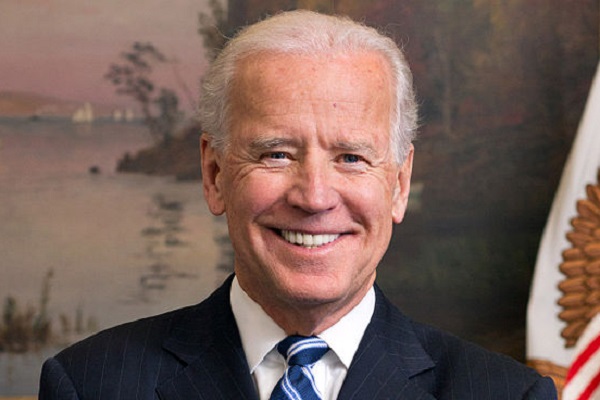It’s a Coup. Just Say It!

Political science types have a word for every happening. One is the Overton Window. Like lots of these terms, it is not too scientific, but it well describes things observed every day.
For instance, the idea that an eight-year-old boy decides to be a girl, because he feels like it, and is then medicated with hormone therapy to look as close to a girl as science enables was once a preposterous idea. Then it was possible, then probable, and now, voilà! A boy is now a girl, and if you use the wrong pronoun, you lose your job!
Meet the Overton Window: that period of time when something seemingly quite impossible becomes mainstream.
This is a game two can play.
Coup.
Say it: “This is not just election fraud, it is a coup.”
Say it, and it will start to sink in. As it does, at least for you, your Overton Window opens up. The impossibility that the election of the president of the United States of America can be overthrown by preprogrammed, organized election fraud — that a likely landslide was turned into a loss — happened. You saw it.
That window is about to open up for our nation.
What’s a coup feel like?
We are all accustomed to seeing tanks around a white palace and palm trees. Lots of them. The streets are quiet and the means of communication controlled by the new junta types. There are corpulent generals with white uniforms and lots of medals. That seems to be our picture.
This week may be the first time a sophisticated modern society had a coup. There, I said it again. Not so startling after you read it a couple of times.
A modern-day coup, where Big Media, Big Tech, a political party, and likely the intelligence agencies gather to change vote counts, both electronically and physically, has much the same result without the tanks and fat generals in white uniforms. The first result is that everyone, or about everyone knows it was a coup. They don’t use that word as it does have an edge to it.
Some stay silent in collaboration. Some do not want to be singled out. Some protest. Many benefit. Most just acquiesce.
We’ll see.
Coups sound really cool to the people who instigate them — in this case, those noted above. They justify it in their end-justifies-the-means minds and move on.
It works in third-world countries because for them, there is no tomorrow. The armed forces just mandate compliance, and life moves on.
In a sophisticated society like ours, that is a little stickier. Let’s go there.
Overwhelming evidence has already come out about institutional voter fraud — for example, here and here.
You will see many more math geeks showing that there was massive voter fraud, and you will not see a single deeply researched math person saying their math is wrong. That’s important.
OK, you met Overton above. Meet Occam.
Occam’s razor is the name given to a critical thought shortcut, which dates back to the Middle Ages, saying that when you are looking at a really complicated problem, for which there are many causes, the simplest explanation is likely to be the correct one.
Our pal Occam describes how people come to reason through a problem. Americans, particularly 71 million of them, see all the complicated stuff about voter fraud yet see that it isn’t that complicated at all. Votes were stolen from Trump by many means. They read articles like the two above.
Applying critical thought, let’s bring in another old, dead white guy, Bayes. Bayes was an 18th-century reverend who had a thing or two to say about how people reason. Bayes’s Theorem measured something like this: if someone knows something with incomplete information, when more information comes in, this happens. “This” is how new info impacts the person’s conclusion.
Well, folks, let’s just sit down at the poker table with Occam, Overton, and Bayes. Together they conclude that as more information appears about organized election fraud, people’s conclusions are likely to move from “election anecdotes” to “election fraud” to “WTF, this was a coup!”
Some of us are already there.
Why is this important?
As long as we continue to screw around, acting as though we are dealing with voter fraud rather than an organized coup, we are playing their game — the fat generals in Big Media and the coup-instigators. When we start calling this event what it is, a coup, we impact everyone’s Overton Window.
Want to have great fun? Just watch the Chris Wallace and media types go wild when we say “coup.”
When one is in the middle of a historic event, one does not know it. Seems like just another day. In hindsight, wow, I was there! I saw our country fake the vote and put an early dementia patient in the president-elect column.
The question for us all is how this story ends. We were there. We were at the axis of history.
What did we do?
It’s a coup.
Jay Valentine’s website is www.JayValentine.com.
Political science types have a word for every happening. One is the Overton Window. Like lots of these terms, it is not too scientific, but it well describes things observed every day.
For instance, the idea that an eight-year-old boy decides to be a girl, because he feels like it, and is then medicated with hormone therapy to look as close to a girl as science enables was once a preposterous idea. Then it was possible, then probable, and now, voilà! A boy is now a girl, and if you use the wrong pronoun, you lose your job!
Meet the Overton Window: that period of time when something seemingly quite impossible becomes mainstream.
This is a game two can play.
Coup.
Say it: “This is not just election fraud, it is a coup.”
Say it, and it will start to sink in. As it does, at least for you, your Overton Window opens up. The impossibility that the election of the president of the United States of America can be overthrown by preprogrammed, organized election fraud — that a likely landslide was turned into a loss — happened. You saw it.
That window is about to open up for our nation.
What’s a coup feel like?
We are all accustomed to seeing tanks around a white palace and palm trees. Lots of them. The streets are quiet and the means of communication controlled by the new junta types. There are corpulent generals with white uniforms and lots of medals. That seems to be our picture.
This week may be the first time a sophisticated modern society had a coup. There, I said it again. Not so startling after you read it a couple of times.
A modern-day coup, where Big Media, Big Tech, a political party, and likely the intelligence agencies gather to change vote counts, both electronically and physically, has much the same result without the tanks and fat generals in white uniforms. The first result is that everyone, or about everyone knows it was a coup. They don’t use that word as it does have an edge to it.
Some stay silent in collaboration. Some do not want to be singled out. Some protest. Many benefit. Most just acquiesce.
We’ll see.
Coups sound really cool to the people who instigate them — in this case, those noted above. They justify it in their end-justifies-the-means minds and move on.
It works in third-world countries because for them, there is no tomorrow. The armed forces just mandate compliance, and life moves on.
In a sophisticated society like ours, that is a little stickier. Let’s go there.
Overwhelming evidence has already come out about institutional voter fraud — for example, here and here.
You will see many more math geeks showing that there was massive voter fraud, and you will not see a single deeply researched math person saying their math is wrong. That’s important.
OK, you met Overton above. Meet Occam.
Occam’s razor is the name given to a critical thought shortcut, which dates back to the Middle Ages, saying that when you are looking at a really complicated problem, for which there are many causes, the simplest explanation is likely to be the correct one.
Our pal Occam describes how people come to reason through a problem. Americans, particularly 71 million of them, see all the complicated stuff about voter fraud yet see that it isn’t that complicated at all. Votes were stolen from Trump by many means. They read articles like the two above.
Applying critical thought, let’s bring in another old, dead white guy, Bayes. Bayes was an 18th-century reverend who had a thing or two to say about how people reason. Bayes’s Theorem measured something like this: if someone knows something with incomplete information, when more information comes in, this happens. “This” is how new info impacts the person’s conclusion.
Well, folks, let’s just sit down at the poker table with Occam, Overton, and Bayes. Together they conclude that as more information appears about organized election fraud, people’s conclusions are likely to move from “election anecdotes” to “election fraud” to “WTF, this was a coup!”
Some of us are already there.
Why is this important?
As long as we continue to screw around, acting as though we are dealing with voter fraud rather than an organized coup, we are playing their game — the fat generals in Big Media and the coup-instigators. When we start calling this event what it is, a coup, we impact everyone’s Overton Window.
Want to have great fun? Just watch the Chris Wallace and media types go wild when we say “coup.”
When one is in the middle of a historic event, one does not know it. Seems like just another day. In hindsight, wow, I was there! I saw our country fake the vote and put an early dementia patient in the president-elect column.
The question for us all is how this story ends. We were there. We were at the axis of history.
What did we do?
It’s a coup.
Jay Valentine’s website is www.JayValentine.com.


